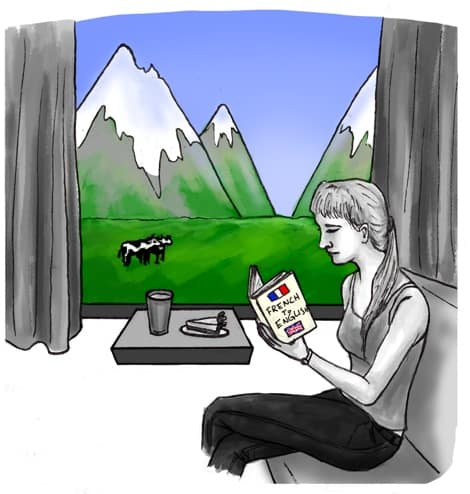Finance internship proves useful, though it lacks the elitist elevator gossip one might expect
For 10 weeks this summer, I worked at a small consulting firm in downtown Toronto. Our firm specializes in regulatory compliance, risk management, and corporate strategies. More concretely, we are engaged by executives at financial institutions for help with board presentations, staff training, and anti-money laundering compliance plans, among other things. Sometimes, we also wrote economic impact studies for government agencies.
As an intern, my workload consisted primarily of compiling statistics and pulling together background research notes. I was involved in six different projects, each at a different stage of engagement.
The experience was definitely novel and exciting. Every day, I would join my coworkers in formal work dress. Days at the office would alternate between the really quiet —where less than five people came in — to the overwhelmingly intense, where phone calls and conversations were buzzing all around me. The work itself was taxing but fulfilling.
On one hand, many assignments often involved extensive research and reading which were frustratingly open-ended. Time zone differences and short deadlines also meant working well into the evenings on a few occasions.
On the other hand, seeing my work being integrated into documents or presentations that we billed clients for gave me an exquisite feeling second to none.
Most importantly, this opportunity gave me a unique glimpse into corporate Canada and the world of finance. The back-and-forth communications, the professionalism, and the go-to sources that insiders use are things that I could have never learned in university.
However, one minor disappointment constantly bugged me: the lack of elevator chit-chats. I was expecting juicy elitist gossip, similar to that reported by Goldman Sachs Elevator Gossip on Twitter, but all I got were blank stares and Volkswagen ads in the overhead monitor.
Li Pan is a third-year student majoring in economics and mathematics.
The Canadian Summer Jobs initiative gives students short-term experience, but good luck staying on throughout the year
Summer job hunting is not an easy task. Fortunately, the Canadian Government has a number of programs designed to provide summer job opportunities for students, including Canada’s Summer Jobs (CSJ) initiative.
Through the program, small organizations and businesses can apply for government funding in order to create summer positions for full-time students.
The CSJ initiative is part of a larger program called the Youth Employment Strategy (YES), which aims to help young people transition into the labour market. My summer job working as a communications assistant at a non-profit would not have existed without this program.
At this non-profit, I had the opportunity to create content on a daily basis and learn a lot about digital strategy.
When my time with the organization comes to an end and I return to school full-time, I will leave with a better understanding of what I would like to do career-wise once I graduate. While I had a positive experience working at this non-profit, there are a few problems I noticed about the CSJ initiative itself.
The CSJ initiative is a temporary solution to the student unemployment issue. Unlike some internships, there are few opportunities available for students to be hired on as full-time employees because the program expects all summer students to resume their studies once their work term is over. The work placements created through this program exist only for the summertime.
What YES and the CSJ initiative fail to recognize is that there are a significant number of students who need to be employed during the school year in order to fund their studies.
While students who take part in these summer work experience programs might spend 12 weeks working at a job that is alligned with their career paths, they will be back to job hunting come September. For some students, being in school is their sole priority during the school year, but for many, balancing school and work is a full-time commitment.
Sofia Luu is a fourth-year student at Victoria College studying diaspora and transnational studies as well as book and media studies.
Publicly funded French immersion program appeals to Canada’s biculturism
This summer I attended La Maison Française at the University of Victoria for five weeks through the federal government’s Explore program.
Explore is a publicly funded French immersion program — as well as an English immersion program for francophones — with placements all across Canada, but mostly concentrated in Québec.
The program consists of four hours of class each morning, workshops on various topics, socio-cultural activities, excursions, and constant French immersion.
Amidst the chaos, there were wonderful moments and not-so-wonderful moments.
The largest frustration for me was the constant choice I had to make between making friends and speaking French. In order to truly get to know my peers and develop real friendships, I had to speak English. In order to improve my French language skills, I had to speak French as much as possible. If I chose to speak English, I didn’t feel verbally restrained and I could form relationships, but I’d be learning nothing. If I chose to speak French, I’d either be talking to someone below my level who wouldn’t understand me, or to someone who was above my level and also wouldn’t understand me.
The more I spoke English, the more I got to know astounding Canadian students, the more experiences we had together, and the more memories we made. It’s much more enjoyable to have a deep conversation in English than a simple, but struggling one in French.
In the end, my favourite part of the program may simply be that it exists as an opportunity for young Canadians. Even if it’s not a perfect program, what’s important is the effort made by our government to reach and reward more of us, however they can.
Plus, I did learn a lot of French, even with all my cheating.
Christina Atkinson is a third-year student at University College studying economics and political science.
The trials of charitable canvassing
For the first four hours of my shift, I brought in only $20; an average night’s quota is $120. Most people didn’t open their doors, either because they weren’t home, or they weren’t interested. Many told me they had already done their donating for the year, and that I was the fourth canvasser this week to come by.
I managed to stick with canvassing for a month and a half before I decided to stop. Unfortunately, making quota was never easy, and I brought the stress of that home with me after every rough shift. It’s discouraging to work hard for five hours and have nothing to show for it. After too many of these nights, you start to worry about your job security.
Eventually, I was verbally accosted by someone at their door with serious anger issues, and I quit. The stress was too much. I would only recommend canvassing work for those with a thick skin and an extroverted, assertive personality.
To work in canvassing you must be able to deal with constant rejection and occasional loathing. You must also be able to accept that luck is as much a factor in your success as hard work or talent. Be careful choosing which company to work for. Do your research; there are scams. It is usually better to work directly for an organization or charity than through a for-profit third party. Mixing charity and profit is pretty disconcerting. Some organizations may “hire” five or six people when there is really only one position, and what seems like a job offer may really be an audition.
To all of those people on the other side of the door: that person holding the clipboard is a person. Maybe you’ve had a few of them knock on your door recently, maybe you’re really busy right now, or maybe your many dogs barked at the sounds of the doorbell and woke up the baby — but this person deserves your respect. If you are not interested, please politely decline.
Sage Irwin is a third-year student at Trinity College studying women and gender studies and English.




